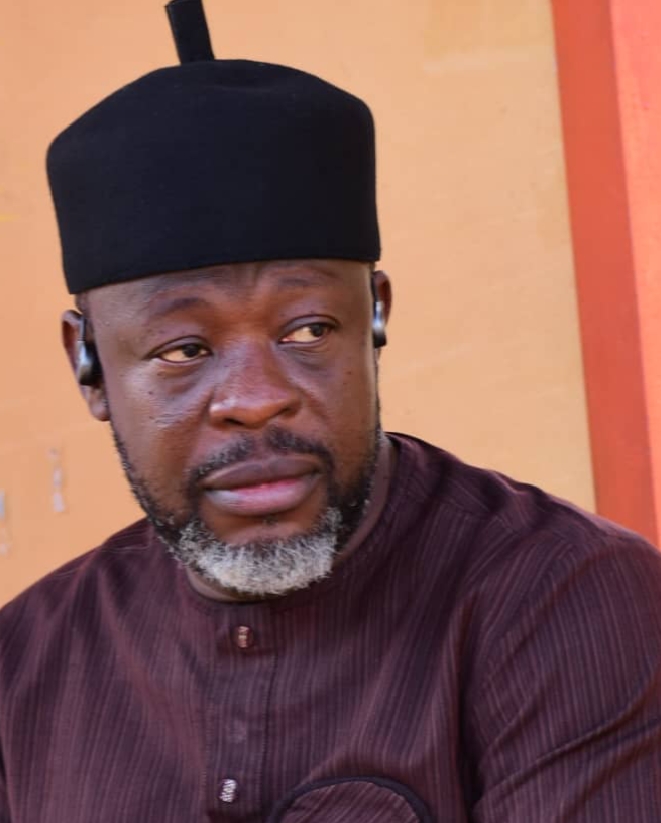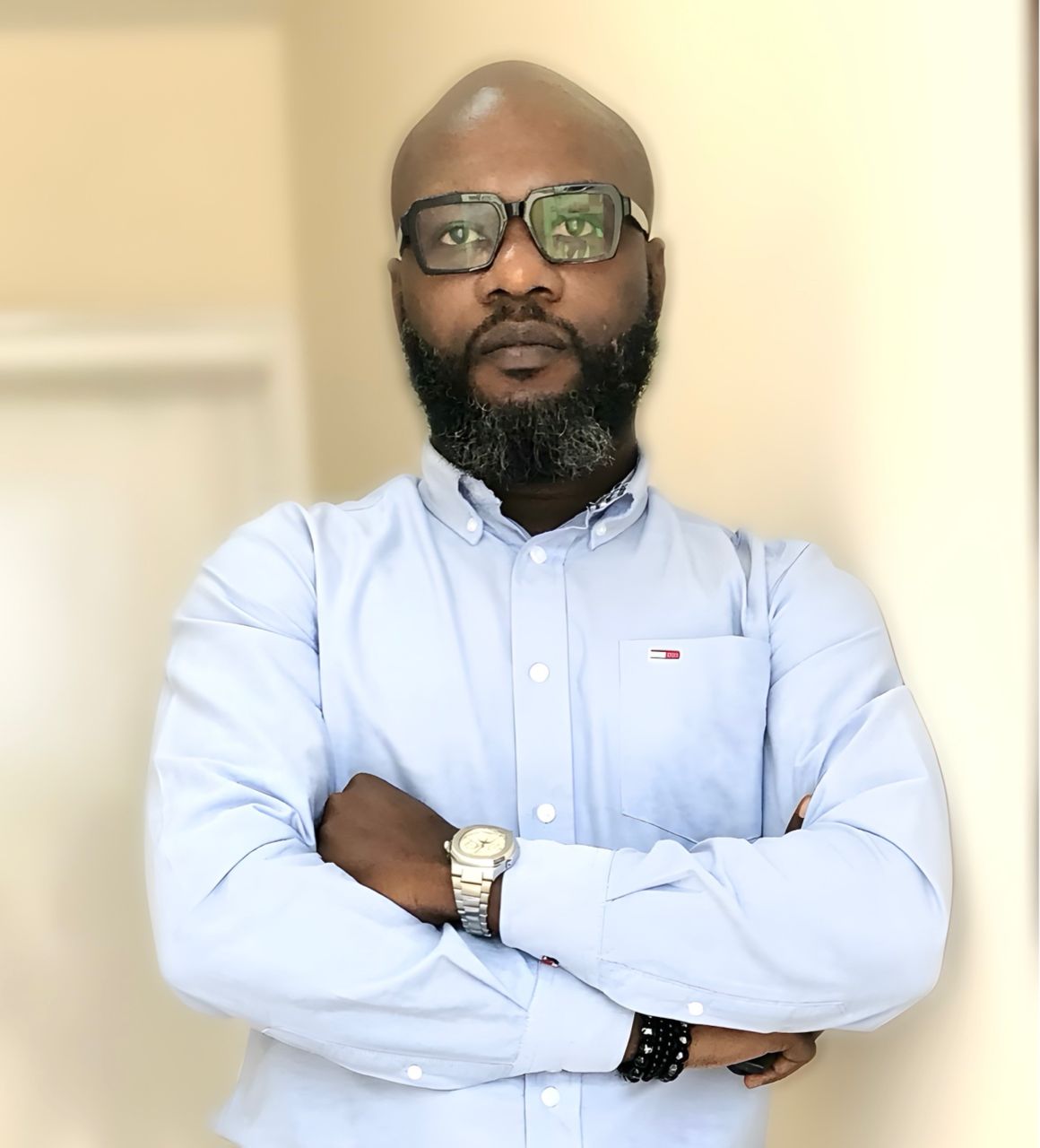The Tragedy of a False Messiah: A Psycho-Political Appraisal of Mazi Nnamdi Kanu and the Future of Biafra Consciousness. By Chidi Ekeh

The Tragedy of a False Messiah: A Psycho-Political Appraisal of Mazi Nnamdi Kanu and the Future of Biafra Consciousness
1.Between Heroism and Hubris
Few figures in Nigeria’s recent history have provoked such intense devotion and equally fierce criticism as Mazi Nnamdi Kanu, leader of the Indigenous People of Biafra (IPOB). To his followers he was the long-awaited voice that could resurrect the dream of Biafra; to his detractors he represented a combustible mixture of ethnic nationalism, defiance, and vanity.
Kanu’s dramatic arrest by Nigeria’s Department of State Services (DSS) in October 2015 at a Lagos hotel, his subsequent bail and flight after the 2017 military raid on his Umuahia residence, and his controversial rendition from Kenya to Nigeria in 2021, created a mythology of persecution and heroism around him. For a population long disappointed by national leadership, his defiance seemed refreshing. Yet, with time, that defiance has turned inward—against allies, lawyers, and the very judicial system through which he seeks freedom.

His story has become more than the chronicle of one man’s detention; it is a mirror reflecting the fractured psychology of resistance in modern Nigeria. The tragedy of Nnamdi Kanu lies not merely in his incarceration, but in how personal theatre has overshadowed a legitimate regional conversation about marginalization, equity, and development.
2. The Illegality of Detention: Between Law and Force
There is little doubt that Kanu’s 2021 return to Nigeria was extrajudicial. International law frowns upon renditions that bypass due process; Kenya’s apparent cooperation in his seizure raised human-rights alarms. Legal scholars have argued that Nigeria’s government, by abducting rather than extraditing him, weakened its moral claim to justice.

Nevertheless, the Nigerian state justified its action by invoking national security. IPOB had been proscribed as a terrorist organization in 2017; its militant offshoots were accused of attacks on police formations and electoral offices. In Abuja’s view, Kanu’s rhetoric from exile—broadcasts calling for “self-defence” and the “restoration of Biafra”—amounted to incitement. Thus, his rendition was framed as a matter of containment rather than legality.
Kanu’s detention since 2021, despite intermittent court rulings questioning its validity, reveals a persistent tension in Nigeria’s democracy: the impulse to crush dissent even when due process would have achieved the same end more credibly. When the Supreme Court in December 2023 ordered the Federal Government to amend the terrorism charges filed under a repealed statute, the DSS’s failure to comply further muddied the legal waters.
In this context, Kanu’s incarceration becomes a case study in procedural ambiguity. The state’s hard-handedness and his own obstinate tactics feed each other. Nigeria looks authoritarian; Kanu looks unreasonable. The rule of law becomes the casualty.
3. The Flip-Flop of Legal Strategy
Inside the courtroom, Kanu’s behaviour has oscillated between eloquence and obstinacy. Initially pleading not guilty, he later demanded that the charges be nullified entirely on the ground that the Terrorism Prevention and Prohibition Act under which he was indicted had been repealed. He refused, on several occasions, to open his defence until the prosecution produced a valid legal basis for the trial.
Observers have watched a cycle repeat itself: new motions, fiery speeches, abrupt refusals to proceed, followed by more motions. Judges extended deadlines, relocated registries to the courtroom to accommodate his filings, and repeatedly urged him to begin his defence. Yet he persisted in defiance. Justice James Omotosho’s patience—culminating in a final warning that failure to proceed by November 7, 2025, would forfeit his right to defence—illustrates how far the court has bent to avoid claims of bias.
Kanu’s approach reveals a paradox. His legal brilliance—the ability to spot procedural loopholes and constitutional inconsistencies—is undermined by a performative distrust of the same judiciary he engages. This self-contradiction projects both courage and chaos. To supporters, he dramatizes oppression; to critics, he sabotages his own freedom.
Such tactics have consequences. The protracted delays erode public sympathy, alienate potential mediators, and risk transforming a once-moral cause into courtroom theatre. In political trials, symbolism matters as much as law. Mandela turned his 1964 trial into a moral referendum; Kanu’s appears increasingly as a procedural quarrel.
A Psychology of Leadership: The Charisma and Its Shadow
Understanding Nnamdi Kanu requires stepping beyond the docket into the psychology of charisma. Like many nationalist agitators, he operates in the emotional register of prophetic certainty. His oratory—half-sermon, half-broadcast—draws upon historical grievance, collective humiliation, and eschatological lpromise. He speaks not merely of politics but of destiny.
Charisma, however, is double-edged. Max Weber described it as authority derived from perceived sanctity or heroism, yet inherently unstable because it depends on constant validation. When followers cheer, the leader feels divine; when questioned, he feels betrayed. Kanu’s periodic quarrels with IPOB insiders and legal teams suggest this fragility. The line between conviction and absolutism blurs easily when one’s legitimacy rests on personal infallibility.
In public appearances and courtroom exchanges, his rhetoric often shifts from legal reasoning to moral absolutism. He castigates the judiciary as “compromised,” denounces the DSS as “terrorists in uniform,” and positions himself as victim-saviour. Such language galvanizes sympathy but alienates potential allies who might translate agitation into negotiation.
This pattern fits what political psychologists term a “martyr complex”—a leadership style that thrives on persecution. The leader’s sense of purpose deepens in proportion to adversity. Yet martyr politics rarely produce sustainable movements; they burn bright and end in ashes. The individual becomes the cause, and when the individual falters, the cause fragments.
Kanu’s personality, therefore, reflects both the strength and weakness of charismatic revolt: the ability to awaken millions, and the inability to institutionalize their energy into constructive structures. Movements built on personality often die with personality.
Biafra Beyond Borders: Consciousness as Nationhood
To focus solely on Kanu’s theatrics is to miss the enduring significance of the Biafra question. Behind the noise lies a legitimate yearning for recognition, fairness, and dignity. The challenge is how to channel that yearning into constructive consciousness rather than destructive separatism.
The Biafra that emerged in 1967 was a geopolitical entity born of survival; the Biafra that must exist today should be an idea—a moral and developmental consciousness cutting across ethnic and geographical boundaries. It need not be a republic; it can be a renaissance.
A. Education as the New Agitation
The Igbo heartland’s greatest resource has always been intellect. From the missionary schools of the early twentieth century to the entrepreneurial zeal that rebuilt towns after the civil war, education remains the surest weapon of self-assertion. Re-imagining Biafra means investing heavily in mass and technical education, digital skills, and regional scholarship funds that send youths abroad to learn and return to build. Instead of barricades, build laboratories; instead of sit-at-home orders, establish coding hubs.
B. Philanthropy as Political Capital
True liberation requires philanthropic networks that mirror the solidarity once expressed through street protests. Successful Igbo professionals, traders, and diaspora citizens can redirect energies from social-media agitation toward endowments for hospitals, research, and vocational schools. Every scholarship becomes a referendum for dignity; every funded classroom, an act of quiet rebellion against neglect.
C. Economic Empowerment and Regional GDP Growth
Political autonomy is hollow without economic viability. The South-East’s GDP, though promising, lags behind its potential. Industrial clusters in Nnewi, Aba, and Onitsha should be modernized into export-driven zones with technology partnerships from Asia and Europe. Improved electricity supply through mini-grids, efficient rail connectivity, and agricultural value chains would demonstrate self-governance through productivity. When the region’s Human Development Index surpasses the national average, arguments for restructuring or autonomy will find moral gravity.
d. A Cultural Reawakening
The Biafra ideal also requires cultural healing. The civil war left wounds not only on bodies but on trust. A new consciousness must cultivate empathy towards other Nigerian ethnicities, replacing grievance with confidence. Literature, film, and festivals can retell the Biafra story as human tragedy and collective learning, not endless hostility. Such cultural diplomacy would earn respect where anger once bred fear.
6. The Politics of Negotiation: Strength through Maturity
Nations and regions negotiate from positions of strength, not noise. The most successful autonomy movements—from Quebec to Catalonia—built formidable intellectual and economic capital before challenging constitutional orders. For the South-East, maturity lies in demonstrating governance competence within existing structures: efficient state administrations, transparent local governments, and vibrant civic organizations.
If the Igbo sub-region can show that it runs schools better, taxes fairly, and innovates faster than the national average, its case for constitutional redesign will write itself. Federalism will not be granted as concession but recognized as common sense.
Thus, the path to Biafra, if it must exist politically, begins not in the courtroom but in the classroom and marketplace. Kanu’s agitation, stripped of theatrics, did expose deep structural inequities. His failure was not in identifying injustice but in mistaking defiance for strategy. His followers must now choose between perpetuating martyrdom or cultivating mastery.
7. A Comparative Lens: Lessons from Other Movements
History offers sobering parallels. In Sri Lanka, the Tamil Tigers began as defenders of minority rights and degenerated into a personality cult around Velupillai Prabhakaran, ending in catastrophe. In contrast, Scotland’s nationalist leaders built institutions, think-tanks, and fiscal credibility, turning independence into a rational debate rather than emotional crusade.
The lesson is simple: movements that intellectualize survive; those that idolize implode. IPOB once possessed the moral capital of a peaceful self-determination movement. Violence in its fringes and the absolutism of its leadership squandered that capital. Rehabilitation will require new faces—scholars, entrepreneurs, women leaders, and technocrats—who can articulate Biafra as policy, not prophecy.
8. Nigeria’s Responsibility: Justice as Statecraft
Criticizing Kanu does not absolve the Nigerian state of responsibility. Excessive force, prolonged detention, and dismissive rhetoric towards legitimate grievances deepen alienation. The federal government must understand that justice is a security strategy. The more it is seen to act lawfully and transparently, the less fuel agitators will have.
Releasing Kanu under supervised bail, ensuring fair trial, or even exploring non-custodial resolutions could de-escalate tensions more effectively than indefinite imprisonment. The judiciary’s credibility rests on the perception that it can restrain executive overreach. Nigeria must learn that conquering a man does not conquer an idea.
9. The Future of Biafra Consciousness
The next decade will determine whether Biafra becomes a blueprint for regional renaissance or remains a perpetual lament. The new consciousness should pursue several fronts:
1. Curriculum Reform: Integrate regional history, innovation, and ethics into school syllabi so that young people learn not bitterness but resilience.
2. Diaspora Partnerships: Use remittances to fund research and industrial ventures, turning emotional attachment into tangible development.
3. Political Literacy: Encourage civic education that teaches negotiation, not nihilism. Replace “sit-at-home” with “think-at-home.”
4. Regional Integration: Strengthen cooperation between South-East and South-South states that historically shared Biafra’s map, forming economic corridors rather than separatist enclaves.
5. Peaceful Advocacy: Promote non-violent lobbying within constitutional channels—state assemblies, national conferences, and judicial reform movements.
When a people begin to outperform their oppressors in innovation, ethics, and governance, their freedom becomes inevitable. Biafra, re-imagined thus, is not secession but self-elevation.
10. Re-reading Nnamdi Kanu: The Man and the Myth
Kanu remains an enigma—brilliant, eloquent, yet unpredictable. His journey from London activist to Nigerian detainee encapsulates the dilemmas of post-colonial agitation: how to rebel against injustice without replicating its intolerance. In him, courage met ego; vision met volatility.
A balanced appraisal must acknowledge his contributions: he rekindled a conversation the Nigerian elite preferred to bury. He challenged complacency in the South-East and exposed hypocrisy in Abuja’s federal pretensions. But leadership requires more than confrontation; it requires construction. The true revolutionary is not the one who shouts loudest but the one who builds longest.
Kanu’s defiance may win applause, yet history rewards those who transform emotion into institutions. If he emerges from detention and chooses introspection over invective, he could still channel his charisma into constructive regional leadership. If not, he risks being remembered as the man who mistook echo for impact.
*11. From Noise to Nationhood: A Call to Renewal*
The South-East and the broader Biafran lineage stand at a crossroads. One path follows endless agitation, symbolic victories, and perpetual victimhood; the other leads to intellectual sovereignty, economic independence, and moral stature within Nigeria and beyond.
The first path depends on anger; the second on action. The first glorifies the detained leader; the second produces thousands of free thinkers. The first ends in hashtags; the second in history books.
To walk the second path requires a cultural shift—from lamentation to learning, from complaint to competence. The “Biafran consciousness” envisioned here is not secessionist but self-affirming: an insistence that dignity arises from discipline, not defiance alone.
Imagine a South-East where every community runs a functional school, where startups flourish under stable electricity, where youth forums discuss patents rather than prisons. Such a region would not need to beg for autonomy; it would embody it. Negotiating a better deal within Nigeria’s constitution would then be a matter of arithmetic, not agitation.
*12. Conclusion: The Measure of a Movement*
When history eventually writes the epilogue of Nnamdi Kanu’s saga, it will judge less the legality of his detention than the legacy of his ideas. Did they inspire construction or merely consumption of grievance? Did they produce builders or believers?
Kanu’s tragedy is that he mistook symbolism for substance. Yet his ordeal still holds lessons for Nigeria and for his followers. A people’s destiny cannot rest on one man’s defiance; it must rise on collective enlightenment. The Igbos and the wider Biafran family can honour his struggle not by echoing his anger but by refining his vision.
Biafra, properly understood, is not a flag to be raised but a spirit to be cultivated—a culture of excellence, enterprise, and equity that quietly subverts marginalization through performance. When the GDP rises, when literacy spreads, when fairness becomes habit, then the world will acknowledge that a nation has already been born within a nation.
In that sense, Biafra need not secede to succeed. It must simply awaken.
Chidi Ekeh a public affairs commentator writes from Abuja FCT Nigeria




